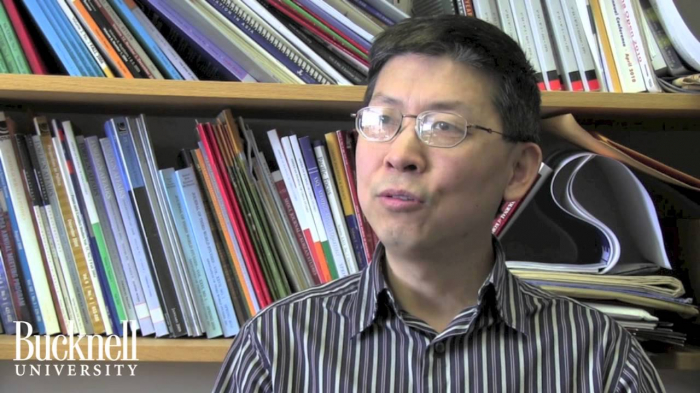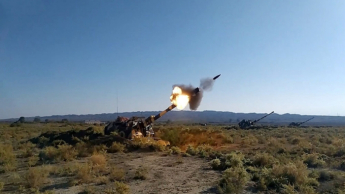Zhiqun Zhu: Pelosi’s visit to Taiwan is completely unnecessary and provocative - İNTERVİEW

Baku Tribune presents an interview with Bucknell University Professor Zhiqun Zhu, an expert on US-China relations and Chinese foreign policy.
Baku Tribune presents an interview with Bucknell University Professor Zhiqun Zhu, an expert on US-China relations and Chinese foreign policy.
- Do you think the US focus will switch from the Ukrainian conflict to Taiwan in the event of an escalation in the Taiwan Strait after Nancy Pelosi’s visit?
- I don’t think tensions will continue to rise in the Taiwan Strait despite the Chinese military exercises following US House Speaker Nancy Pelosi’s visit to Taiwan. And I don’t think the US focus will shift from Ukraine to Taiwan.
China’s live-fire military drills around Taiwan are expected as a response to Pelosi’s visit, which the Chinese government warned against repeatedly in advance. For both domestic and international audiences, Beijing wanted to demonstrate its determination and capability regarding Taiwan.
With the conclusion of the Chinese military exercises, the temperature in the Taiwan Strait will hopefully drop. Both the United States and Taiwan are taking the Chinese military activities calmly, understanding that China will not launch an attack to forcefully unify with Taiwan now.
However, in the long term, Washington, Beijing and Taipei must handle the delicate Taiwan issue with greater caution to avoid a real Taiwan Strait crisis. Pelosi’s visit to Taiwan is completely unnecessary and provocative when the US-China relations are in such a terrible shape now. She and her supporters know it would add fuel to the fire, but she still proceeded with an official visit, and this irresponsible behavior is the cause of current tensions.
- Earlier an article in The American Spectator concluded that President Joe Biden was powerless regarding Pelosi’s planned visit to Taiwan. Why did the journal make such a conclusion? How would you comment on this?
- The White House and Congress are two separate and independent branches of the US government, and the President does not have the authority to tell members of Congress including the Speaker of the House what to do or not to do.
However, this separation of powers cannot be used to justify contradictory US foreign policies, especially when dealing with sensitive and potentially explosive issues such as Taiwan.
Pelosi and Biden are from the same political party and largely share the same views on domestic and foreign policies. Members of Congress are entitled to their personal views on controversial issues, but when representing the United States abroad, their words and deeds should not contradict official US policy.
Biden was concerned about Pelosi’s visit and remarked that the US military did not think it was a good idea. However, he apparently did not do enough to persuade her not to visit Taiwan. So, yes Biden has no power to tell Pelosi what to do, but it does not mean Pelosi can defy official US policy of only maintaining “unofficial” relations with Taiwan.
- Speaker of the US House of Representatives Nancy Pelosi visited Taiwan on August 2 and met with the island's leadership the next morning. China said that Pelosi's visit to Taiwan would be considered US interference in China's internal affairs, and the military "won't sit idly by." The PLA has conducted military exercises around Taiwan, while a US aircraft carrier was nearby and Taiwan's armed forces were put on "high alert." What could be the consequences of Pelosi's visit to Taiwan?
- I think tensions will decrease after the conclusion of the Chinese military exercises. China was following through with its warning to respond “resolutely” to Pelosi’s Taiwan visit. No one was surprised. As John Kirby, a spokesperson for the US National Security Council, put it, “We anticipated that China might take steps like this." In fact, during Chinese military drills the United States postponed a long-scheduled missile test as a prudent step to avoid raising tensions.
Clearly, nobody wants a war in the Taiwan Strait now, but the United States, China and Taiwan need to figure out how to manage incidents such as Pelosi’s visit to Taiwan that could lead to a military conflict.
China has been adamant about its sovereignty over Taiwan, while Taiwan, which used to believe both sides of the Taiwan Strait are part of China, now increasingly argues that Taiwan and China are not subordinate to each other. The United States only recognizes the People’s Republic of China as the official government of China and maintains “unofficial” relations with Taiwan. The United States acknowledges, but not explicitly accept, the Chinese position that Taiwan is part of China.
Due to continued disputes over Taiwan’s status, the Taiwan Strait will remain volatile in the future and tensions can easily rise again.
- Should we expect a war between China and Taiwan? In the event of war, what will be the role of the United States? Do you think China is ready to take control of Taiwan by military means?
- No, I don’t think there will be a war now or in the near future. China has followed a peaceful unification policy since the early 1980s. Though it has not ruled out the use of force, unification with Taiwan by peaceful means remains China’s fundamental policy.
For a long time, the United States has adopted “strategic ambiguity” regarding Taiwan – a dual deterrence strategy to deter the PRC from using force against Taiwan and to prevent Taiwan from provoking the PRC. In recent years, a small number of American scholars and members of Congress argue that the United States should change “strategic ambiguity” to “strategic clarity” in light of Beijing’s growing assertiveness.
President Biden said several times that the United States was committed to defending Taiwan. But each time, the While House had to backtrack to emphasize that the US policy remained unchanged. As of now, the US government still follows a “one China” policy as well as the 1979 Taiwan Relations Act. The United States continues to sell weapons to Taiwan to help Taiwan defend itself, but it is not obligated to defend Taiwan. The priority of all parties involved is to avoid war, not to provoke a conflict.
-Why is Taiwan important to the United States? What are the US interests in Taiwan?
- The United States had a long-standing relationship with the Nationalist Party (Kuomintang or KMT) that ruled China before 1949. After being defeated in the Chinese Civil War, Chiang Kai-shek and his KMT government retreated to Taiwan. Mao Zedong proclaimed the founding of the People’s Republic of China (PRC) in October 1949, but Chiang’s Republic of China (ROC) government continued to operate in Taiwan and represented China internationally until 1971, when the PRC replaced the ROC to be the sole representative of China.
The United States was about to abandon Taiwan after Mao’s forces took over the Chinese mainland and, it seemed inevitable that the corrupt Chiang government would collapse and Taiwan would fall under Mao’s control. The Korean War that broke out in June 1950 saved Taiwan since the United States was concerned about the spread of communism. Taiwan became a strategic asset to the United States during the Cold War.
Taiwan has democratized since the 1980s. Today the United States strongly supports Taiwan’s vibrant democracy. In addition, economic, cultural and people-to-people exchanges between the United States and Taiwan are very dynamic. Relations between the United States and Taiwan are “unofficial” but are very close.
For all these reasons, the United States will support Taiwan since it serves America’s national interests. Of course, as US-China rivalry intensifies now, Taiwan has gained additional value for the United States to be a leverage it can use to counter China. The United States has a “one China” policy that “acknowledges” the Chinese position that Taiwan is part of China, but for strategic reasons the United States is unlikely to support China’s unification with Taiwan.
Interviewed by Seymur Mammadov
The Rocket and Artillery formations of the Azerbaijan Army conduct live-fire exercises in accordance with the combat training plan for 2021, the Ministry of Defense of Azerbaijan told Baku Tribune.
LAST NEWS






.jpg&h=67&w=67&zc=1&q=100)













